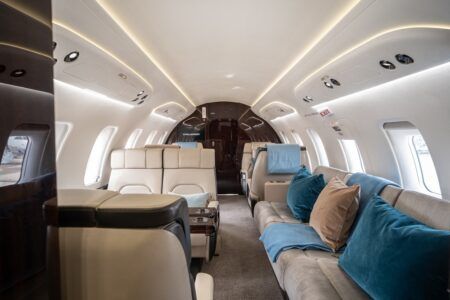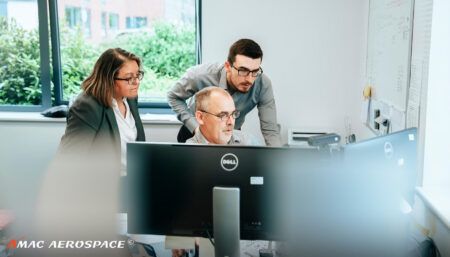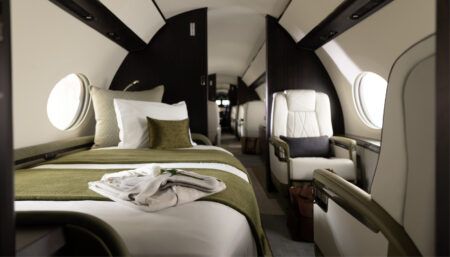A new study commissioned by Airbus Corporate Jets (ACJ) has found that 96% of US corporations who own or lease business aircraft anticipate upgrading to new or better models in the next five years.
When asked why their company was looking to upgrade its fleet, the leading driver cited by two-thirds (67%) of those surveyed was the new US tax legislation allowing businesses to write-off 100% of the purchase price of a corporate jet used for business travel. Other significant motivations included managing operational costs (63%), the arrival of newer and more fuel-efficient models (59%) and the ability to use more sustainable fuels (51%). The need for larger aircraft was also evident – with 41% citing an increase in executive usage and 25% identifying demand for greater range.
| Reasons US corporations are looking to upgrade their business aircraft | Percentage of US corporations surveyed who gave this as a reason to upgrade their business aircraft |
| New tax legislation in the US | 67% |
| Growing focus on operational costs | 63% |
| Newer/better/more fuel-efficient models have recently been launched | 59% |
| Upgrade to models that can make greater use of sustainable fuel | 51% |
| Need for bigger aircraft as more company executives will be using them | 41% |
| Residual value considerations | 29% |
| Need for bigger aircraft that have greater range | 25% |
Over the next two years, 91% of those surveyed expect usage to rise, with 39% anticipating a dramatic increase. Looking further ahead, 90% forecast greater use of business aviation within five years, almost half (45%) predicting dramatic growth. The top reasons for this included the US current favourable tax environment, increased flexibility compared to scheduled airlines and improved security.
“This study confirms what we are seeing in the market,” said Chadi Saade, president of Airbus Corporate Jets. “US corporations are not only using business aviation more frequently, they are also looking to upgrade to larger, more capable aircraft. The combination of incentives, new and more efficient models and the value companies place on comfort, range and sustainability all point to strong demand in the years ahead. ACJ is proud to be at the forefront of this shift with aircraft such as the ACJ TwentyTwo, designed to meet the evolving requirements of corporate America.”
The study also points to a shift in how corporations deploy their fleets. Nearly nine in 10 (88%) expect to see more large US companies investing in their own large jets to operate employee shuttle services over the next five years. Comfort, technology and connectivity are seen as the key benefits of traveling via corporate aircraft, with cabin space rated number one.
ACJ offers a range of large business aircraft. The company says that its ACJ TwoTwenty offers more than double the cabin space of traditional ultra long range (ULR) business jets, along with high fuel efficiency. It occupies the same parking footprint as competitive ULR jets and can take off from the same airports, but the ACJ TwoTwenty operating costs are one-third less.
With a range of up to 5,650 nm (more than 12 flight hours), the ACJ TwoTwenty can meet the requirements of 99.9% of all US departures, connecting Los Angeles to London, Miami to Buenos Aires, and New York to Sao Paulo.
As with all ACJ aircraft, the ACJ TwoTwenty is capable of flying with up to a 50% blend of kerosene and sustainable aviation fuel (SAF) while keeping to the technical specifications of Jet A. All Airbus commercial aircraft and helicopters will be capable of operating with 100% SAF by 2030. This capability will play an important role in the sector’s decarbonisation journey.
Over 200 Airbus corporate jets are in service worldwide.





